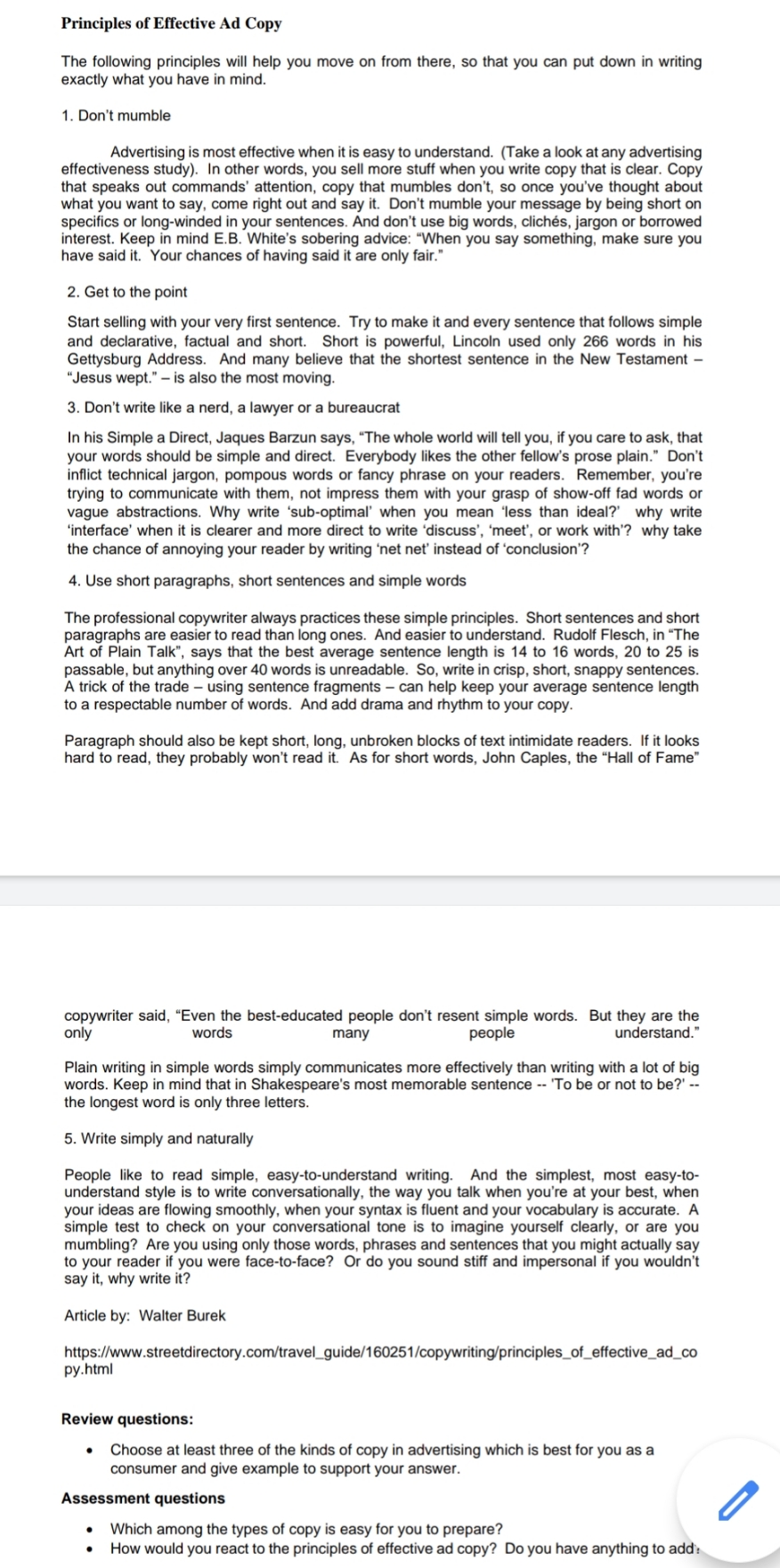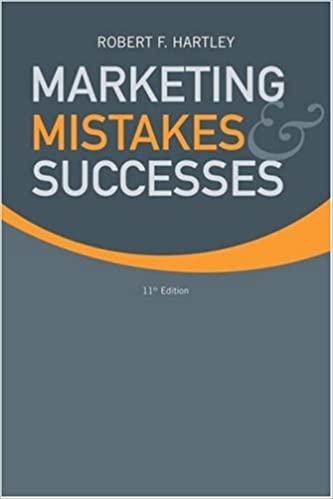Choose at least three of the kinds of copy in advertising which is best for you as a consumer and give example to support your answer.Which among the types of copy is easy for you to prepare?How would you react to the principles of effective ad copy? Do you have anything to add?
Principles of Effective Ad Copy The following principles will help you move on from there, so that you can put down in writing exactly what you have in mind. 1. Don't mumble Advertising is most effective when it is easy to understand. (Take a look at any advertising effectiveness study). In other words, you sell more stuff when you write copy that is clear. Copy that speaks out commands' attention, copy that mumbles don't, so once you've thought about what you want to say, come right out and say it. Don't mumble your message by being short on specifics or long-winded in your sentences. And don't use big words, cliches, jargon or borrowed interest. Keep in mind E.B. White's sobering advice: "When you say something, make sure you have said it. Your chances of having said it are only fair." 2. Get to the point Start selling with your very first sentence. Try to make it and every sentence that follows simple and declarative, factual and short. Short is powerful, Lincoln used only 266 words in his Gettysburg Address. And many believe that the shortest sentence in the New Testament - "Jesus wept." - is also the most moving. 3. Don't write like a nerd, a lawyer or a bureaucrat In his Simple a Direct, Jaques Barzun says, "The whole world will tell you, if you care to ask, that your words should be simple and direct. Everybody likes the other fellow's prose plain." Don't inflict technical jargon, pompous words or fancy phrase on your readers. Remember, you're trying to communicate with them, not impress them with your grasp of show-off fad words or vague abstractions. Why write 'sub-optimal' when you mean 'less than ideal?' why write "interface' when it is clearer and more direct to write 'discuss', 'meet', or work with'? why take the chance of annoying your reader by writing 'net net' instead of 'conclusion'? 4. Use short paragraphs, short sentences and simple words The professional copywriter always practices these simple principles. Short sentences and short paragraphs are easier to read than long ones. And easier to understand. Rudolf Flesch, in "The Art of Plain Talk", says that the best average sentence length is 14 to 16 words, 20 to 25 is passable, but anything over 40 words is unreadable. So, write in crisp, short, snappy sentences. A trick of the trade - using sentence fragments - can help keep your average sentence length to a respectable number of words. And add drama and rhythm to your copy. Paragraph should also be kept short, long, unbroken blocks of text intimidate readers. If it looks hard to read, they probably won't read it. As for short words, John Caples, the "Hall of Fame" copywriter said, "Even the best-educated people don't resent simple words. But they are the only words many people understand." Plain writing in simple words simply communicates more effectively than writing with a lot of big words. Keep in mind that in Shakespeare's most memorable sentence -- 'To be or not to be?' -- the longest word is only three letters. 5. Write simply and naturally People like to read simple, easy-to-understand writing. And the simplest, most easy-to- understand style is to write conversationally, the way you talk when you're at your best, when your ideas are flowing smoothly, when your syntax is fluent and your vocabulary is accurate. A simple test to check on your conversational tone is to imagine yourself clearly, or are you mumbling? Are you using only those words, phrases and sentences that you might actually say to your reader if you were face-to-face? Or do you sound stiff and impersonal if you wouldn't say it, why write it? Article by: Walter Burek https://www.streetdirectory.com/travel_guide/160251/copywriting/principles_of_effective_ad_co py.html Review questions: . Choose at least three of the kinds of copy in advertising which is best for you as a consumer and give example to support your answer. Assessment questions Which among the types of copy is easy for you to prepare? How would you react to the principles of effective ad copy? Do you have anything to add







